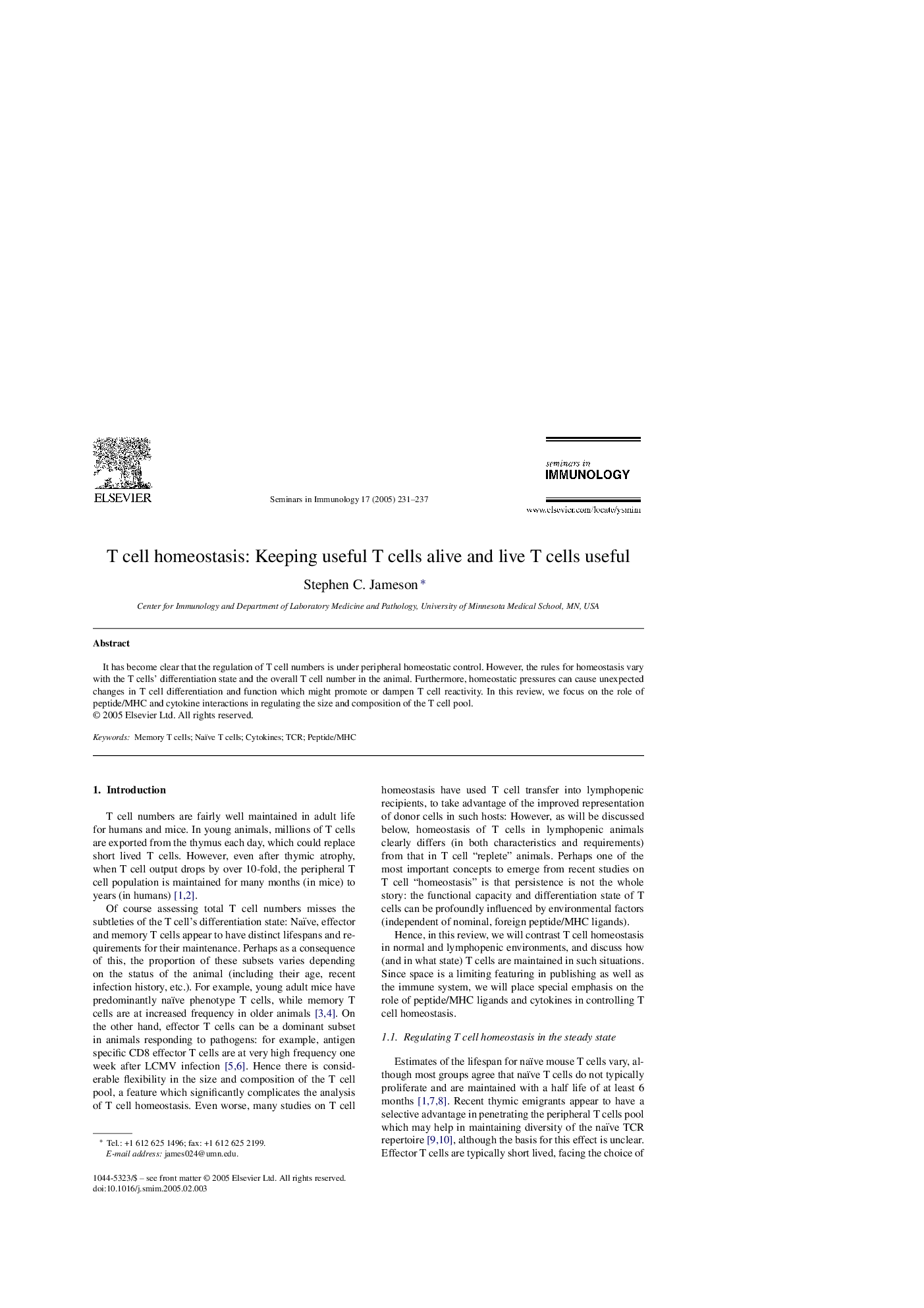| Article ID | Journal | Published Year | Pages | File Type |
|---|---|---|---|---|
| 9273531 | Seminars in Immunology | 2005 | 7 Pages |
Abstract
It has become clear that the regulation of T cell numbers is under peripheral homeostatic control. However, the rules for homeostasis vary with the T cells' differentiation state and the overall T cell number in the animal. Furthermore, homeostatic pressures can cause unexpected changes in T cell differentiation and function which might promote or dampen T cell reactivity. In this review, we focus on the role of peptide/MHC and cytokine interactions in regulating the size and composition of the T cell pool.
Related Topics
Life Sciences
Immunology and Microbiology
Immunology
Authors
Stephen C. Jameson,
